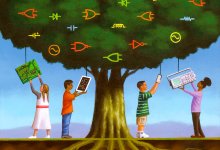Formative Assessment
Find and share ideas for checking in with students during a project, class, or semester to assess their learning and see if content or instruction needs adjusting.
10 Powerful Ways to End Your Lessons
Instead of cleaning up or going over homework assignments, try these creative activities that can help students make sense of new material—and have fun in the process.3.1k13 Formative Assessments That Inspire Creativity
Sometimes mixing in formative assessments that go a step beyond exit slips and low-stakes quizzes can inject some fun—and creativity—into learning.4k7 Smart, Fast Ways to Do Formative Assessment
Within these methods you’ll find close to 40 tools and tricks for finding out what your students know while they’re still learning.61.4kInviting Participation With Thumbs-Up Responses
A quick assessment strategy replaces raised hands, encouraging more students to contribute by accommodating their different processing needs.37.1k8 Quick Checks for Understanding
Formative assessment is a proven technique for improving student learning, and the strategies shared here by Jay McTighe work both in the classroom and remotely.16.6kFormative Assessment in Distance Learning
The pandemic has closed schools, but schooling goes on—and it remains crucial that teachers find ways to see what students are learning.18.7k6 Steps to Effective Whole-Class Feedback
Ensuring that students know what they did well and where they need to improve doesn’t have to be an interminable task.4263 Ways to Ask Questions That Engage the Whole Class
These techniques guide all students to process course content and then actively demonstrate their learning.20.9k7 Ways to Do Formative Assessments in Your Virtual Classroom
Finding out what your students are really learning remains indispensable to teaching. Here’s what teachers are doing to check for understanding online.14.4kHow to Use Students’ Prior Knowledge to Build Math Skills
Instruction that’s informed by what students already know, and thoughtfully supported by intentional questions, can help ensure retention of math concepts.5823 Ways Student Data Can Inform Your Teaching
Gather and use valuable student data to inform your classroom practice.28kReading the Virtual Classroom Is Hard, but It Can Be Done
Many teachers find it difficult to gauge how well students understand a lesson in an online classroom. A technique common among award-winning online instructors should help.11.1k5 Research-Based Tips for Providing Students with Meaningful Feedback
Feedback is an essential part of learning, but not all of it is productive. We’ve collected five best practices for giving students feedback.29.6k5 Review Activities That Kids Actually Like
Content review doesn’t need to be boring—here’s how to liven it up and make the information stick.2.8kMetacognition: Nurturing Self-Awareness in the Classroom
When students practice metacognition, the act of thinking about their thinking helps them make greater sense of their life experiences and start achieving at higher levels.21k













